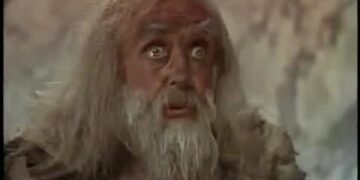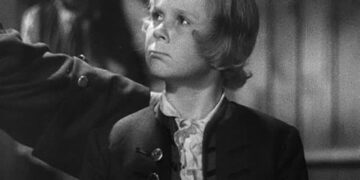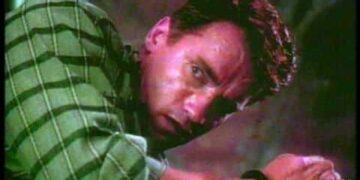‘The Hustler’ is a remarkable piece of American pop culture that represents a period of significant cultural change.
In the wake of World War II, the United States experienced a period of prosperity and growth that led to a new wave of cultural expression. This was reflected in various forms of media, including literature and film.
Among these, ‘The Hustler’ stands out as a defining work, encapsulating the spirit of ambition, struggle, and redemption.
Pioneered by Walter Tevis in literature and Robert Rossen in film, the story of ‘The Hustler’ has made a profound impact on generations of audiences.
Its cultural significance is undeniable—its themes of ambition, defeat, and redemption resonate with audiences even today.
The story’s compelling mix of drama, sport, and character study has cemented its place in popular culture.
Additionally, ‘The Hustler’ is not only a story well-told but also a cultural artifact that offers insight into the era in which it was created.
Its portrayal of pool halls, the sport of pool, and the characters that inhabit this world provides a unique snapshot of American culture in the mid-20th century.
Brief Biography of Walter Tevis and Robert Rossen
Walter Tevis was a notable American novelist and short story writer, known for his eloquent portrayals of flawed characters struggling against their own limitations and the world around them.
Born in 1928 in San Francisco, Tevis grew up in Kentucky, where he developed a love for pool—an experience that would later inspire ‘The Hustler’.
His writing career spanned several decades, during which he produced numerous works that transcended genres, including science fiction, drama, and sports.
Robert Rossen, on the other hand, was a renowned filmmaker whose career spanned from the 1930s to the 1960s.
Born in New York City in 1908, Rossen cut his teeth in the film industry as a screenwriter before moving into directing.
His works are known for their gritty realism, complex character studies, and social commentary.
‘The Hustler’ is widely regarded as one of his best films, showcasing his talent for translating complex characters and themes onto the big screen.
‘The Hustler’: Book Summary
The book ‘The Hustler’, written by Walter Tevis, introduces us to the character of “Fast” Eddie Felson, a small-time pool hustler with big dreams.
The book follows Eddie’s journey as he challenges the legendary Minnesota Fats, suffers a crushing defeat, and spirals into self-destruction.
Along the way, he meets Sarah, a woman battling her own demons, and Bert, a ruthless gambler who becomes Eddie’s manager.
Eddie’s obsession with beating Minnesota Fats leads him down a path of self-destruction, alienating those who care about him.
His relationship with Sarah becomes strained as his obsession grows, and he becomes increasingly entangled with Bert, who manipulates Eddie for his own gain.
The book paints a vivid picture of the seedy underworld of pool hustling, showcasing the highs and lows of Eddie’s life. From the intoxicating thrill of victory to the crushing despair of defeat, Tevis masterfully captures the tumultuous journey of a man driven by ambition and pride.
‘The Hustler’: Movie Summary
The film adaptation of ‘The Hustler’, directed by Robert Rossen, largely follows the plot of the book but with some notable differences.
Paul Newman stars as Eddie Felson, while Jackie Gleason plays Minnesota Fats, George C. Scott portrays Bert, and Piper Laurie is cast as Sarah.
The movie begins with Eddie and his partner Charlie entering Ames, a high-end pool hall, with the intention of hustling Minnesota Fats.
Despite a promising start, Eddie’s hubris gets the better of him, and he ends up losing everything.
Following his defeat, Eddie spirals into self-destruction, leading him to cross paths with Sarah and Bert.
While the movie faithfully captures the spirit of the book, it also adds its own unique elements.
Rossen’s direction brings a gritty realism to the story, while the performances of the cast add depth to the characters.
The film is often praised for its powerful acting, compelling narrative, and its portrayal of the dark, competitive world of pool hustling.
Parent guide to ‘The Hustler’
As compelling and culturally significant as ‘The Hustler’ is, parents should be aware that it deals with mature themes.
The story delves into the seedy world of pool hustling, and its characters grapple with issues such as addiction, manipulation, and self-destruction.
While the movie does not contain explicit violence, it does feature scenes of intense conflict and emotional turmoil.
Eddie’s obsessive pursuit of victory and the lengths he is willing to go to achieve it may be disturbing to younger viewers.
Similarly, the relationship between Eddie and Sarah is complex and fraught with tension, dealing with themes of co-dependency and emotional abuse.
However, ‘The Hustler’ also offers valuable lessons about the dangers of unchecked ambition and the importance of personal integrity.
It presents a cautionary tale of what can happen when one loses sight of what truly matters in the pursuit of victory.
Parents should consider these factors and their child’s maturity level before deciding whether ‘The Hustler’ is appropriate viewing.
When and Where ‘The Hustler’ Takes Place
The story of ‘The Hustler’ takes place in the mid-20th century, specifically the late 1950s and early 1960s.
This was a time of significant cultural change in the United States, characterized by post-war prosperity, social upheaval, and the rise of popular culture.
The setting of the story is largely urban, with the action taking place in various cities across the United States.
The story begins in the small town of Oakland, California, where Eddie hustles pool in local bars.
However, the bulk of the story takes place in New York City, where Eddie challenges Minnesota Fats and meets Sarah and Bert.
The pool halls of ‘The Hustler’ are a world unto themselves, filled with colorful characters, intense competition, and the constant undercurrent of danger.
These locations serve as the backdrop for Eddie’s journey, reflecting the highs and lows of his life.
Exploring the Film Locations of ‘The Hustler’
The filming of ‘The Hustler’ took place in various locations across the United States, primarily in New York City.
The city’s gritty urban landscape was a fitting backdrop for the story, reflecting the harsh realities of Eddie’s world.
Ames Pool Hall, where Eddie challenges Minnesota Fats, was a set created in a studio, but it was designed to mimic the upscale pool halls of the era.
Other notable locations include the Lexington Hotel, where Eddie stays after his defeat, and the Broadway bar where Eddie meets Sarah.
While many of the filming locations have changed or no longer exist, they remain a testament to the film’s attention to detail and commitment to authenticity.
The film’s use of real locations adds a layer of realism to the story, immersing viewers in the world of ‘The Hustler’.
Who’s Who in ‘The Hustler’
‘The Hustler’ features a cast of complex characters, each with their own motivations and flaws.
The protagonist, ‘Fast’ Eddie Felson, is a talented pool player with a burning desire to prove himself the best. However, his ambition often blinds him to the consequences of his actions.
Minnesota Fats, the reigning pool champion, serves as both Eddie’s idol and adversary.
Despite his status as the antagonist, Fats is portrayed as a man of integrity who respects the game and his opponents.
Sarah Packard is a troubled woman who becomes involved with Eddie. Despite her own struggles, she sees through Eddie’s bravado and challenges him to confront his flaws.
Bert Gordon is a ruthless gambler who takes Eddie under his wing.
While he helps Eddie in his quest for victory, his manipulative nature and disregard for others’ wellbeing make him a dangerous influence.
Memorable Quotes from ‘The Hustler’
‘The Hustler’ is known for its sharp dialogue and memorable quotes. One of the most famous lines comes from Eddie, who says, “I’m the best there is.
And even if you beat me, I’m still the best.”
This quote encapsulates Eddie’s arrogance and his unwavering belief in his abilities.
Another memorable quote comes from Minnesota Fats, who tells Eddie, “You’ve got talent, but it’s not enough.
Playing pool for a living isn’t about talent. It’s about character.” This remark highlights the difference between Eddie and Fats, emphasizing the importance of integrity and character in their world.
Sarah also delivers a powerful line when she tells Eddie, “You’re a born loser. It’s in your character.”
This harsh assessment cuts to the core of Eddie’s struggle, highlighting his self-destructive tendencies and the obstacles he must overcome.
Understanding the Soundtrack by Kenyon Hopkins
The soundtrack of ‘The Hustler’ is a crucial element of the film’s atmosphere, underscoring the drama and tension of the story.
Composed by Kenyon Hopkins, the score masterfully evokes the mood of the film, ranging from the upbeat jazz tunes that accompany the pool games to the somber melodies that underscore the characters’ struggles.
Hopkins was a noted composer of film and television scores, known for his ability to enhance the narrative through music.
In ‘The Hustler’, his score adds depth to the film, reflecting the characters’ emotions and the changing dynamics of the story.
Curiosities and Trivia about ‘The Hustler’
‘The Hustler’ is a film rich in detail and complexity, and there are many interesting facts and trivia associated with its creation.
For instance, the actors underwent extensive training to convincingly portray pool players.
Paul Newman, in particular, spent hours practicing pool to portray Eddie Felson convincingly.
Another interesting fact is that despite the film’s success, it was initially met with resistance from the Production Code Administration, which objected to its portrayal of pool hustling and moral ambiguity.
However, the film’s producers stood their ground, and ‘The Hustler’ went on to become a critical and commercial success.
How to Dress like Characters from ‘The Hustler’: Tips for Cosplay
Dressing like characters from ‘The Hustler’ can be a fun way to engage with the film and its iconic characters.
Eddie Felson is known for his sharp suits and slicked-back hair, embodying the cool, confident demeanor of a pool hustler. A suit, tie, and a fedora would be essential for any Eddie Felson cosplay.
For Minnesota Fats, a more formal attire is required. The character is usually seen in a tuxedo, reflecting his status and professionalism.
A tuxedo, bow tie, and a waistcoat would be perfect for a Minnesota Fats cosplay.
Breaking Down the Ending of ‘The Hustler’
The ending of ‘The Hustler’ is a poignant conclusion to Eddie’s journey. After a series of losses and setbacks, Eddie challenges Minnesota Fats to a rematch.
This time, Eddie wins, proving his skill and tenacity. However, his victory is bittersweet. His obsession with winning has cost him his relationship with Sarah and his integrity.
The ending serves as a powerful commentary on the cost of ambition. Eddie achieves his goal, but at a great personal cost.
It’s a poignant reminder that victory without integrity is hollow and that personal relationships are more valuable than any game.
Discussing the Remake, Sequel, and Spin-offs of ‘The Hustler’
‘The Hustler’ has had a significant impact on popular culture, inspiring a sequel, a remake, and various spin-offs.
The most notable is ‘The Color of Money’, a sequel released in 1986 that sees Paul Newman reprise his role as Eddie Felson.
Now a pool room owner, Eddie mentors a young pool player, mirroring his own journey in ‘The Hustler’.
There have also been several spin-offs and adaptations in other media, including a stage play and a radio drama.
Each of these adaptations offers a different take on the story and characters of ‘The Hustler’, further cementing its cultural significance.
Other Media by Robert Rossen
Robert Rossen was a prolific filmmaker whose career spanned several decades and genres.
Apart from ‘The Hustler’, he is known for his work on films such as ‘All the King’s Men’, a political drama that won the Academy Award for Best Picture, and ‘Body and Soul’, a boxing drama that is considered one of the greatest sports films of all time.
Rossen’s films are known for their gritty realism, complex characters, and social commentary.
His work has had a significant impact on filmmaking, influencing a generation of directors and writers.
Similar Media to ‘The Hustler’: Recommendations for Fans
If you enjoyed ‘The Hustler’, there are several other films and books that you might like. ‘The Color of Money’, the sequel to ‘The Hustler’, is a must-watch for fans.
Other films that explore similar themes include ‘Rocky’, a sports drama about a small-time boxer’s shot at the title, and ‘The Cincinnati Kid’, a poker drama that shares many similarities with ‘The Hustler’.
In literature, Walter Tevis’s other works, such as ‘The Man Who Fell to Earth’ and ‘The Queen’s Gambit’, are excellent choices.
These books showcase Tevis’s talent for creating compelling characters and intricate narratives.
Exploring Other Works by Walter Tevis
Walter Tevis was a prolific writer whose works spanned various genres. Apart from ‘The Hustler’, he is known for novels such as ‘The Man Who Fell to Earth’, a science fiction novel about an alien who comes to Earth to save his dying planet, and ‘The Queen’s Gambit’, a coming-of-age story about a young chess prodigy.
Tevis’s books are known for their compelling characters, insightful exploration of human nature, and engaging narratives.
His works have had a significant impact on literature, influencing countless writers and spawning numerous adaptations.
Book Club Questions for ‘The Hustler’
Discussing ‘The Hustler’ in a book club can lead to insightful conversations about its themes and characters.
Some possible discussion questions include:
- What motivates Eddie Felson, and how does his ambition drive the narrative?
- How does the setting of the pool halls contribute to the story?
- What is the significance of Eddie’s relationship with Sarah?
- How does ‘The Hustler’ explore the concept of victory and defeat?
- What does the ending of the book say about the cost of ambition?
The Hustler in Video Games
The influence of ‘The Hustler’ extends beyond film and literature to the realm of video games.
Several pool video games have drawn inspiration from ‘The Hustler’, incorporating elements of pool hustling and competition into their gameplay.
These games allow players to experience the thrill and strategy of pool in a digital format, further demonstrating the cultural impact of ‘The Hustler’.
Travel Guide: Visiting ‘The Hustler’ Locations
Visiting the filming locations of ‘The Hustler’ can be a thrilling experience for fans.
While many of the original locations have changed or no longer exist, there are still several sites in New York City that were used in the film.
These include the Lexington Hotel, where Eddie stays after his defeat, and Broadway, where Eddie meets Sarah.
While visiting these sites, fans can immerse themselves in the world of ‘The Hustler’, experiencing firsthand the locations that served as the backdrop for this iconic story.
Conclusion
‘The Hustler’ is more than just a story about pool—it’s a tale of ambition, struggle, and redemption that resonates with audiences even today.
Whether you’re a fan of the book, the film, or both, there’s no denying the cultural impact of this masterpiece.
From its compelling characters to its iconic quotes, ‘The Hustler’ remains a touchstone of American pop culture, a testament to the talents of Walter Tevis and Robert Rossen.













